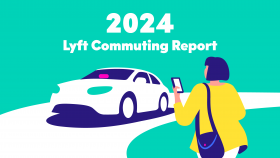- December 27th, 2024
- 0 Comments

Lyft has reported that nearly half of its weekday rides are now for commuters (a larger share than in 2019), indicating a shift in transportation habits due to the rise of hybrid work. With more people working from home on certain days, the economics of using rideshare services for commuting have become more favorable, as noted by Jeremy Michalek, a professor at Carnegie Mellon.
Lyft has introduced a subscription option to attract regular commuters, with fixed prices for repeat routes. The flexibility offered by rideshare services is particularly appealing for hybrid workers who may have social events after office hours. Rideshare drivers, like Sergio Avedian, find that while commuting trips may offer lighter tips and heavier traffic, they come with the advantage of dealing with passengers who are awake and less likely to leave a mess in the vehicle.
Should this trend continue, it could have implications for car ownership and carbon emissions in the future, though the increase in rideshare commuting presents both opportunities and challenges. On one hand, rideshare services can complement public transit by providing flexible transportation options for those who work hybrid schedules, potentially reducing the need for personal vehicle ownership and associated congestion and emissions. On the other hand, a shift from public transit to rideshare could lead to increased traffic and emissions if not managed effectively.
The trend highlights the importance of considering new transportation demand management strategies that integrate rideshare services into the broader transportation ecosystem. The shift in commuting patterns may necessitate a reevaluation of infrastructure and policy to accommodate the changing needs of commuters, such as designated pickup and drop-off zones for rideshare vehicles.
On a related note, there has also been a surge in long-distance commuting, or "super commuters" according to research published by Stanford University.
Note: The Marketplace article linked above cites information originally published behind Bloomberg news paywall.
Source: Marketplace.org













